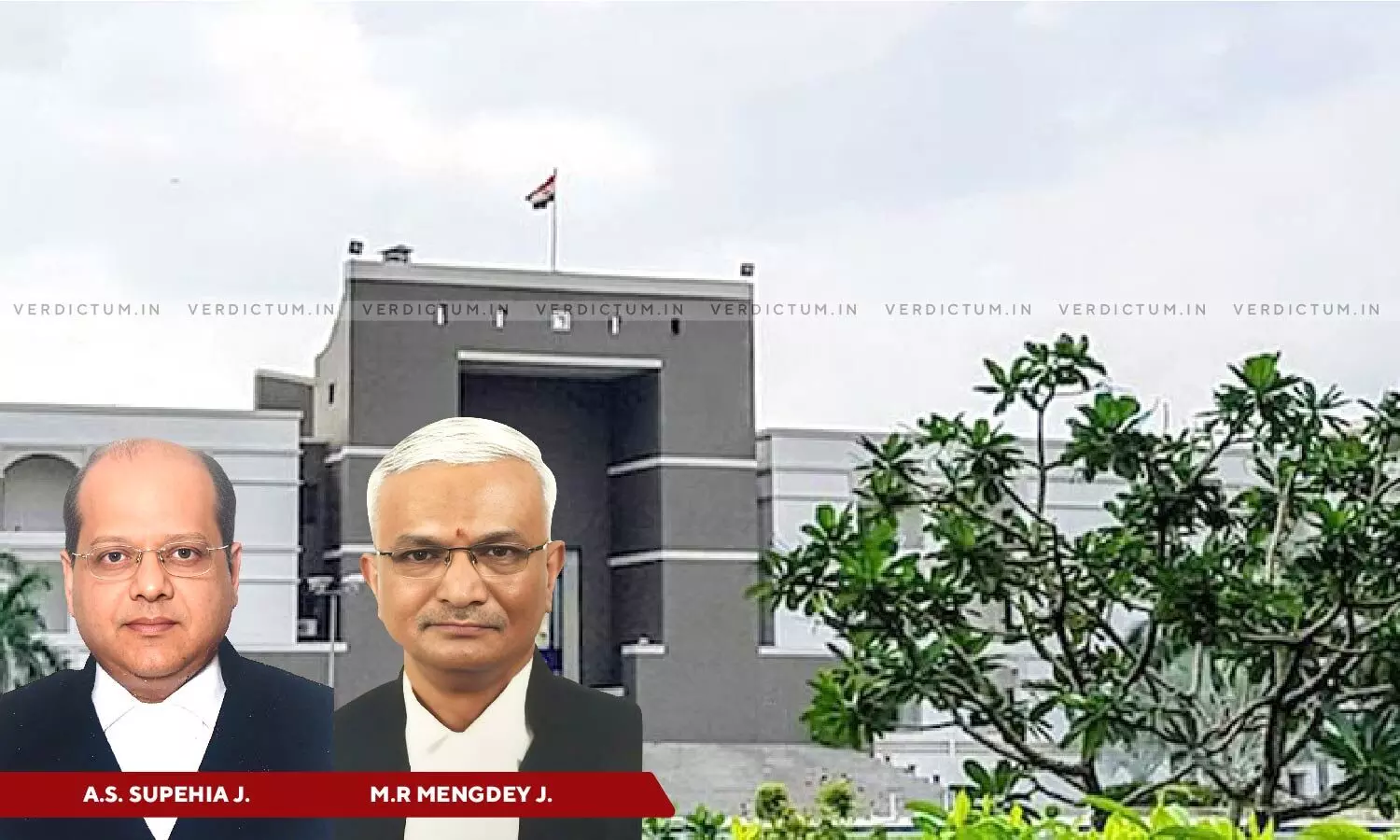
Single Injury Causing Death Can Also Be 'Murder': Gujarat High Court
 |
|The Gujarat High Court observed that a single injury causing death can also be 'murder' under Clause 3 of Section 300 of the Indian Penal Code, 1860 (IPC).
The Court convicted an accused in a murder case holding that he exploited the victim's vulnerability and acted with calculated cruelty to inflict a fatal blow. The Court allowed the Appeal filed by the State against the acquittal of said individual.
The State had contended that the Trial Court failed to consider substantial evidence like the dying declarations, the surrender of the accused with the weapon, and forensic reports confirming the deceased's blood on the knife.
“It is further held that where the prosecution proves that the accused had intention to cause death of any person or to cause bodily injury to him and the intended injury is sufficient in the ordinary course of nature to cause death, then, even if he inflicts a single injury which results in the death of the victim, the offence squarely falls under Clause Thirdly of Section 300 of the IPC unless one of the exceptions applies”, the Bench comprising Justice AS Supehia and Justice MR Mengdey observed.
Additional Public Prosecutor Krina Calla appeared for the Appellant and Advocate Hardik K Raval appeared for the Respondent.
The State had approached the High Court challenging the acquittal of Prakash Mithubhai Mulani (First Accused) for murder.
In the previous order, the Court had overturned the acquittal of Prakash Mithubhai Mulani (First Accused) for murder charges. The Court noted that the previous acquittal was flawed due to the Trial Court overlooking crucial evidence like the dying declarations, the surrender of the accused with the weapon, and forensic reports confirming the deceased's blood on the knife. Based on these findings, the Court set aside the acquittal and ordered a hearing to determine the appropriate conviction under relevant sections of the IPC.
In the previous order, the Court noted that the deceased died from fatal injuries inflicted by the First Accused. These injuries, inflicted with a knife on the victim's vital neck region, severed a crucial blood vessel. Evidence suggested that the other co-accused restrained the victim, allowing the First Accused to deliberately and precisely target the neck with deadly intent.
The Court reiterated the distinctions between Section 300 murder and Section 299 culpable homicide. The Bench emphasized that intent and knowledge are crucial factors, highlighting that a single injury can be murder if it's objectively lethal and the accused was aware of the risk. Even if intent falls within specific categories, the act might be downgraded to culpable homicide if it meets any of the five exceptions outlined in Section 300.
Furthermore, the Bench observed the difference between Part I and Part II of Section 304 and emphasized the importance of "likely" meaning "probably" in the context of causing death. Distinguishing mens rea requirements under different clauses, the Court noted that the intention to inflict a potentially fatal injury elevates culpable homicide to murder. In cases with single-injury deaths, the accused's intent is inferred from the circumstances.
The Court noted that the evidence indicated that the deceased came to the incident location to inquire about his sister, who was allegedly being teased by the First Accused. The First Accused and co-accused restrained the deceased, and the First Accused deliberately inflicted a single knife blow to the deceased's throat, cutting a vital vein. The court finds that there was a clear intention on the part of the accused to harm the deceased.
Furthermore, the Court observed that the First Accused failed to establish a sudden and grave provocation, rendering him deprived of self-control when causing the death of the deceased. The Bench noted that the First Accused took undue advantage and acted cruelly by precisely inflicting a blow to cut the vein, especially when the deceased's movement was restricted by the co-accused.
Therefore, the Court held that the First Accused cannot benefit from either Exception-I or Exception-IV to Section 300 of the IPC. The offence does not fall under the provisions of Part I or Part II of Section 304 of the IPC. The inflicted injury aligns with Clauses secondly and thirdly of Section 300, the Court noted that the accused knew that the inflicted injuries, particularly on vital body parts, would likely cause the death of the deceased.
The Court sentenced the First Accused to life imprisonment and a fine of Rs. 5,000 with default imprisonment of six months. Recognizing the lengthy timeframe, the Court granted the accused 21 days to voluntarily surrender before the concerned trial court.
Accordingly, the Court allowed the Appeal.
Cause Title: State Of Gujarat v Prakash @ Piddu Mithubhai Mulani & Ors.